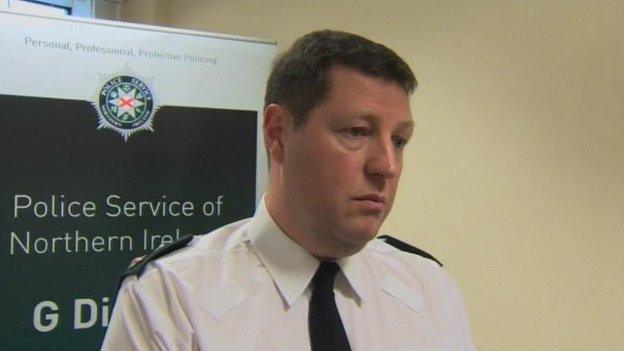Neighbourhood police: One in seven officers axed were beat bobbies
- Published
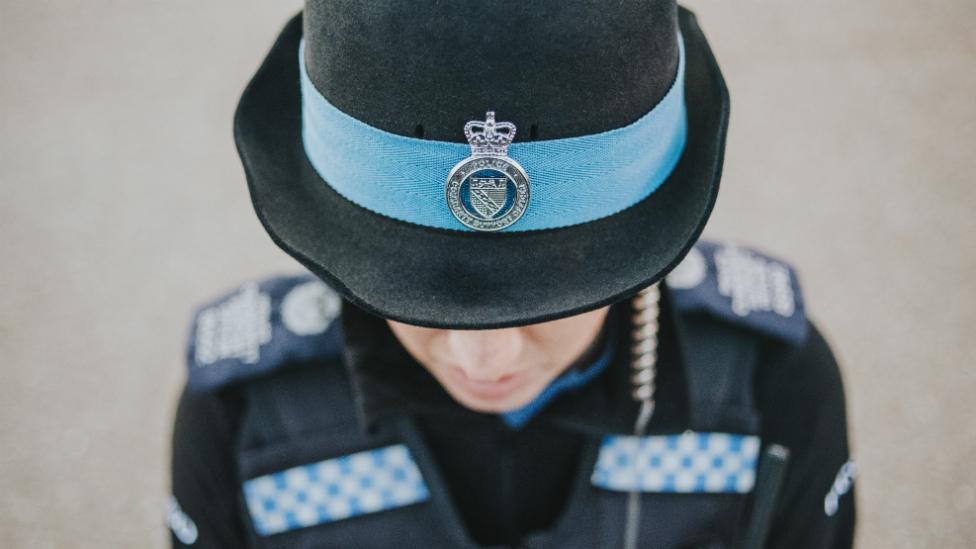
There are 4,188 fewer Police Community Support Officers (PCSOs) than five years ago
Bobbies on the beat accounted for one in seven axed police posts over the past five years, analysis suggests.
At the same time, one in three police community support officer (PCSO) posts - originally intended to be the "eyes and ears, external" of the community - have gone.
Critics say a visible police presence in communities deters criminals and helps gather intelligence.
The Home Office said "overall traditional crime" had fallen by almost 40% since 2010.
The BBC's Shared Data Unit compared workforce figures for 43 police forces in England and Wales, Police Service Northern Ireland (PSNI) and Police Scotland over a five-year period from 2012 to 2017.
Our analysis of official data found:
Of the almost 11,000 police officer jobs axed, some 1,500 were neighbourhood policing posts - around 14%
The number of police community support officers in England and Wales dropped from 14,393 to 10,205
In Northern Ireland, the overall number of police officers dropped by 581 (8%), but the number of neighbourhood officers dropped by 77% from 1,382 to 311
Police Scotland does not classify officers in the same way nor employ police community support officers, but has 180 fewer officers overall than in 2012
The BBC focussed its analysis on officers whose primary role was designated as being a neighbourhood officer. Some forces have suggested a change in the way data was collected in 2016 makes it difficult to compare with previous years.
Experts, however, said there had been a shift away from neighbourhood policing. Andy Higgins, research director at think tank The Police Foundation, said neighbourhood policing had been hit "quite hard".
"It's not the most acute emergency at the urgent end and therefore resources will always get sucked elsewhere," he said.
"People with that nominal neighbourhood remit are being called on to do the emergency response work, rather than being proactive and preventative.
"Though people have that neighbourhood badge, they are being asked to attend 999 calls and investigate crime once it has happened."

The volunteer - 'Residents feel they are on their own'
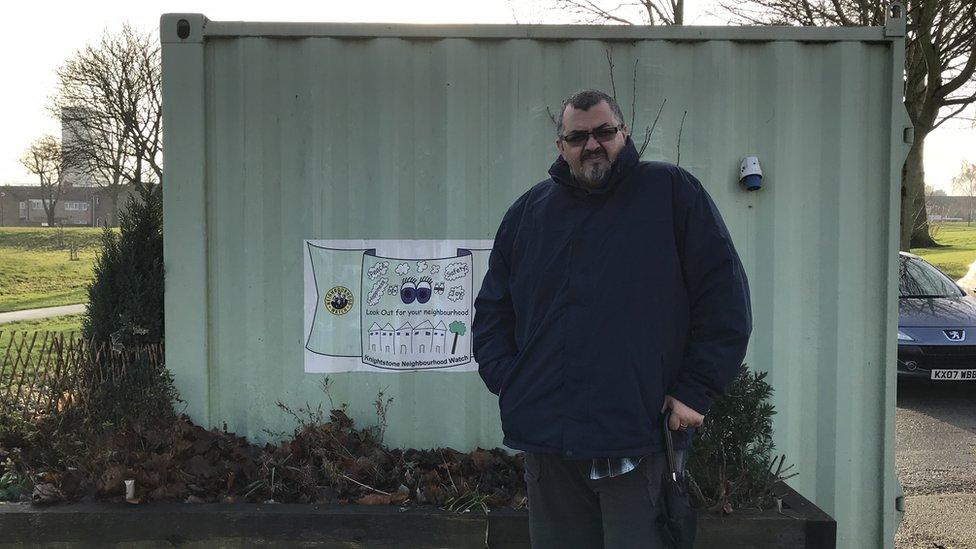
Former bus driver Mark Jastrzebski was disabled when he was stabbed in the neck in 2001.
He formed the Knightstone Avenue Neighbourhood Watch Group when he moved to Hockley, Birmingham, West Midlands, in 2009.
He said: "Being visible is strategic in community policing. Police would not have local knowledge without the help of the local community so they need to have officers there.
"They are losing the confidence of people because such a lot of residents feel they are on their own."
The neighbourhood team in his community has been reduced from six police officers to four, and from four PCSOs to one.
"I would never knock police who were doing a hard job with limited resources" but for five people to do work once covered by 10 people was an "impossible" task.

Ex gang member - 'Neighbourhood officers are good deterrents'

Former gang member Gavin McKenna holds sessions with young people in Brentwood, Essex, to help them learn from his mistakes.
Essex's force has lost 484 neighbourhoods officers and PCSOs combined since 2012 - a 61% drop in five years.
Mr McKenna witnessed drug dealing and stabbings from the age of eight.
He said: "It's important you have them [officers] on the streets, they are good deterrents.
"When a drug dealer comes to scout out a new area, if there's a noticeable police presence they will think twice.
"If officers are personable and on the street building relations in the community, they have a better chance of making a difference in that community."

Northern Ireland - 'This should have been the last thing they cut'
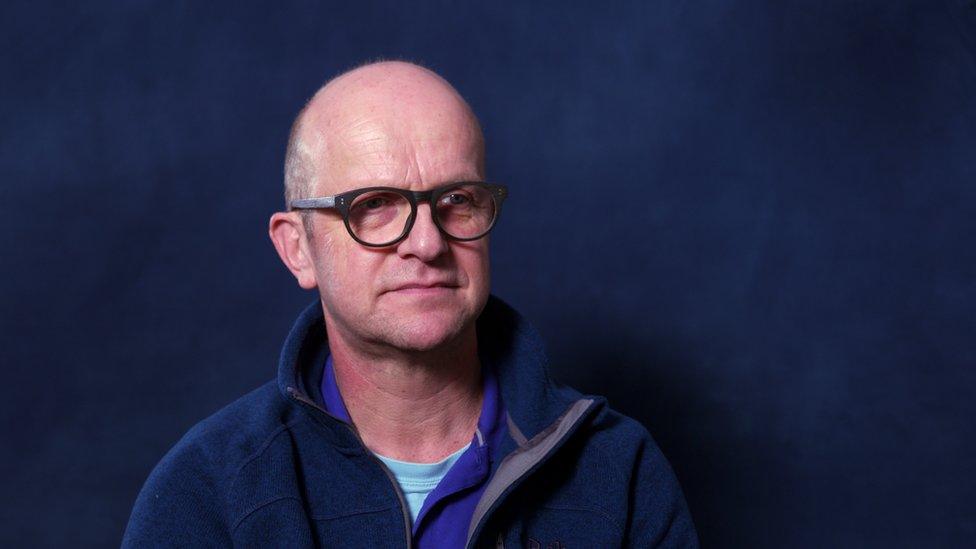
Community worker Paul Smyth said neighbourhood policing in Northern Ireland should have been protected
Paul Smyth helped to establish the Stop Attacks forum, a coalition working across Northern Ireland comprising youth workers, academics and activists, to stop so-called "punishment attacks".
"The key task of police is building confidence in communities so people give information to police," he said. "It's a big investment from a community to build a relationship and trust with police.
"I'm not sure police understand the full consequence - this should have been the last thing they cut, not the first."
Ian McLaughlin, of the Lower Shankill Community Association in Belfast, Northern Ireland, said policing was "now being run by bean-counters".
"We have the luxury of neighbourhood policing teams because of interface issues, but in this particular district we used to have six and we now have three.
"But in many rural communities, neighbourhood policing has completely disappeared.
"Peelers [slang for police in Northern Ireland] know everyone in their community including the local scallywags and act as a deterrent to low-level crime."
The PSNI decision to reclassify officers was taken in 2015 as part of sweeping changes to the force because of budgetary cuts, a spokesman said.
Assistant Chief Constable Alan Todd, district policing command for PSNI, said: "In areas with higher levels of crime or deprivation, where there is a specific policing need, or which are geographically isolated, these officers are supported by a small number of bespoke neighbourhood officers.
"This is the primary change since 2015. Prior to then almost every community in Northern Ireland had a small neighbourhood team.
"Given the continued reduction to the policing budget these structures are continually kept under review."
What is neighbourhood policing?
It involves teams of officers dedicated to working in a local community. Officers work on building relationships with residents and being a visible presence.
The Scarman report, following the Brixton riots in 1981, emphasised the importance of getting officers back into neighbourhoods, and a further push came 20 years later with the creation of police community support officers.
In 2015, the Police Federation chair Steve White warned the bobby on the beat was under serious threat from financial cuts, but was warned by then Home Secretary Theresa May to stop "crying wolf".
And a year later, an Inspector of Constabulary, Zoe Billingham, warned that police forces could be "sleepwalking" back to an old model of policing. where they are "isolated from communities".
The Home Office, which is responsible for police funding in England and Wales, said: "We know the nature of crime is changing, and we've spoken to every police force in the country to understand the demands they are facing.
"In December, we set out a comprehensive settlement to strengthen local and national policing, which will mean police funding will increase by up to £450m next year.
"We are clear that effective local policing needs to be about more than just visibility in isolation. With crime increasingly taking place behind closed doors and online it is also about safeguarding vulnerable groups or individuals and giving the police the powers they need to deal with emerging and hidden crimes."
More about this story

The Shared Data Unit makes data journalism available to news organisations across the media industry, as part of a partnership between the BBC and the News Media Association.
For more information on methodology, click here., external For the full dataset, click here., external
- Published1 January 2018
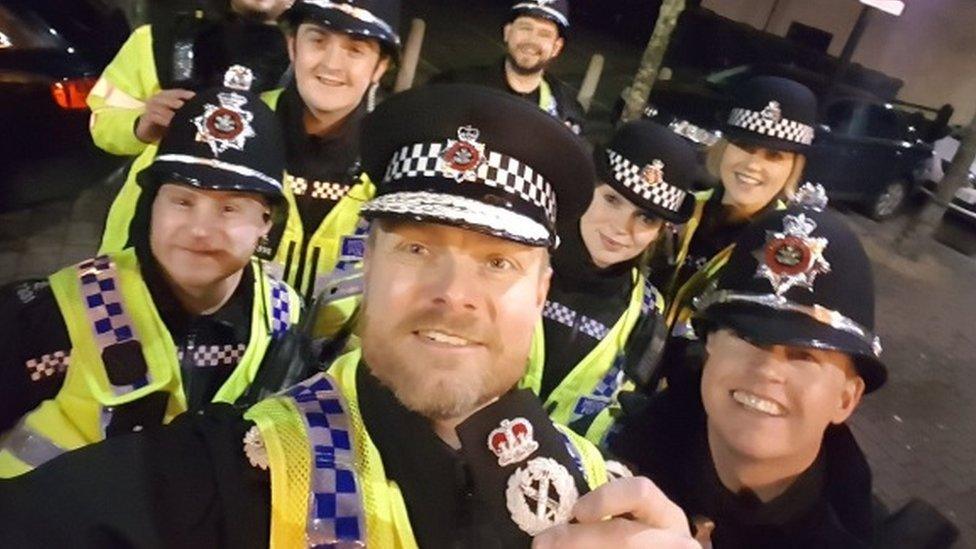
- Published19 December 2017
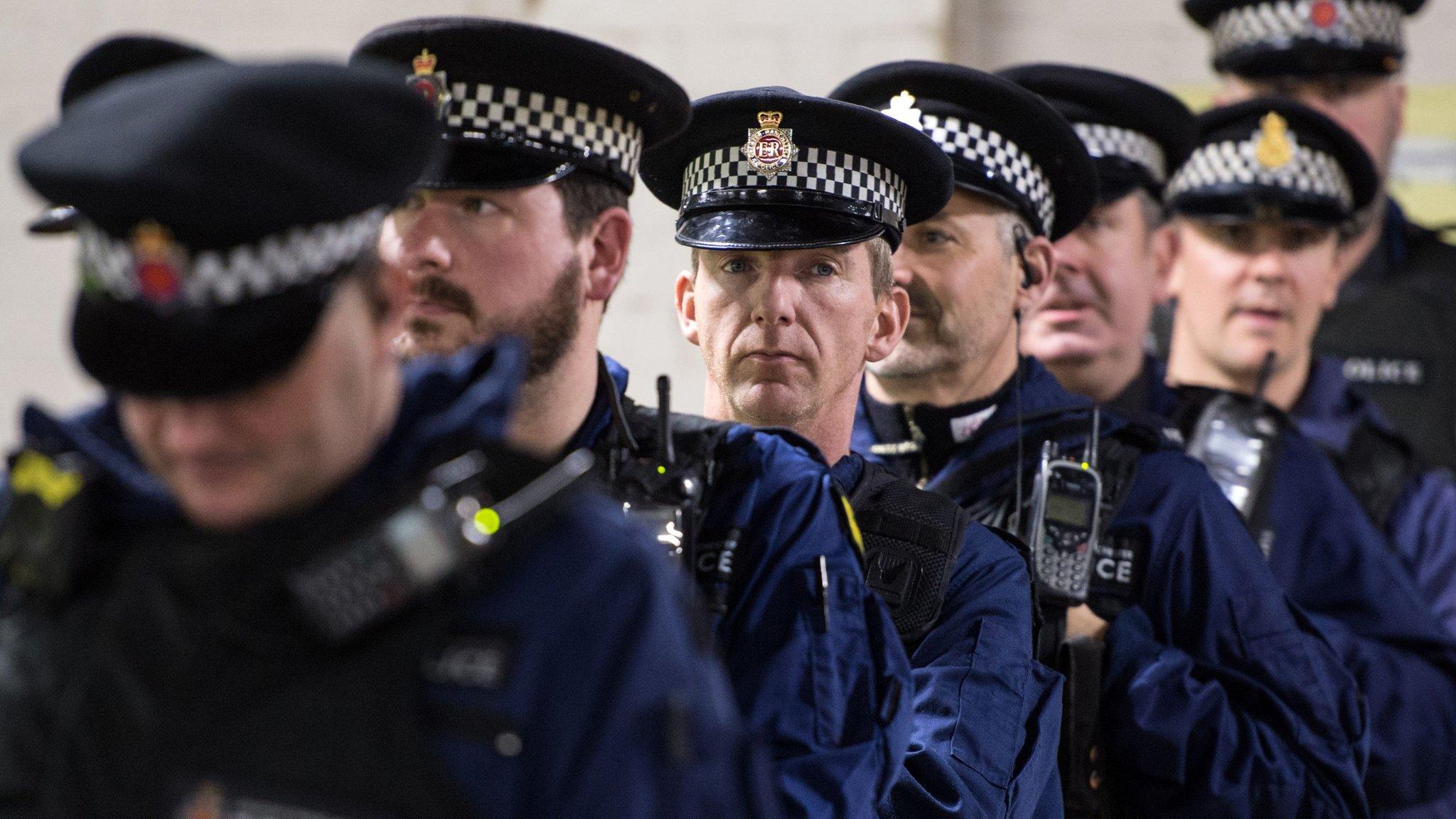
- Published20 November 2017
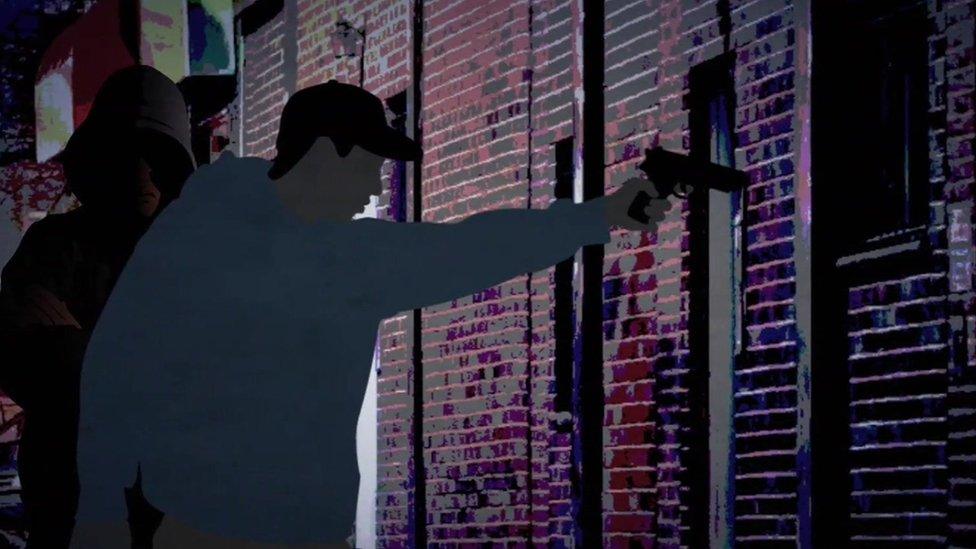
- Published19 October 2017

- Published11 August 2017

- Published29 January 2015
